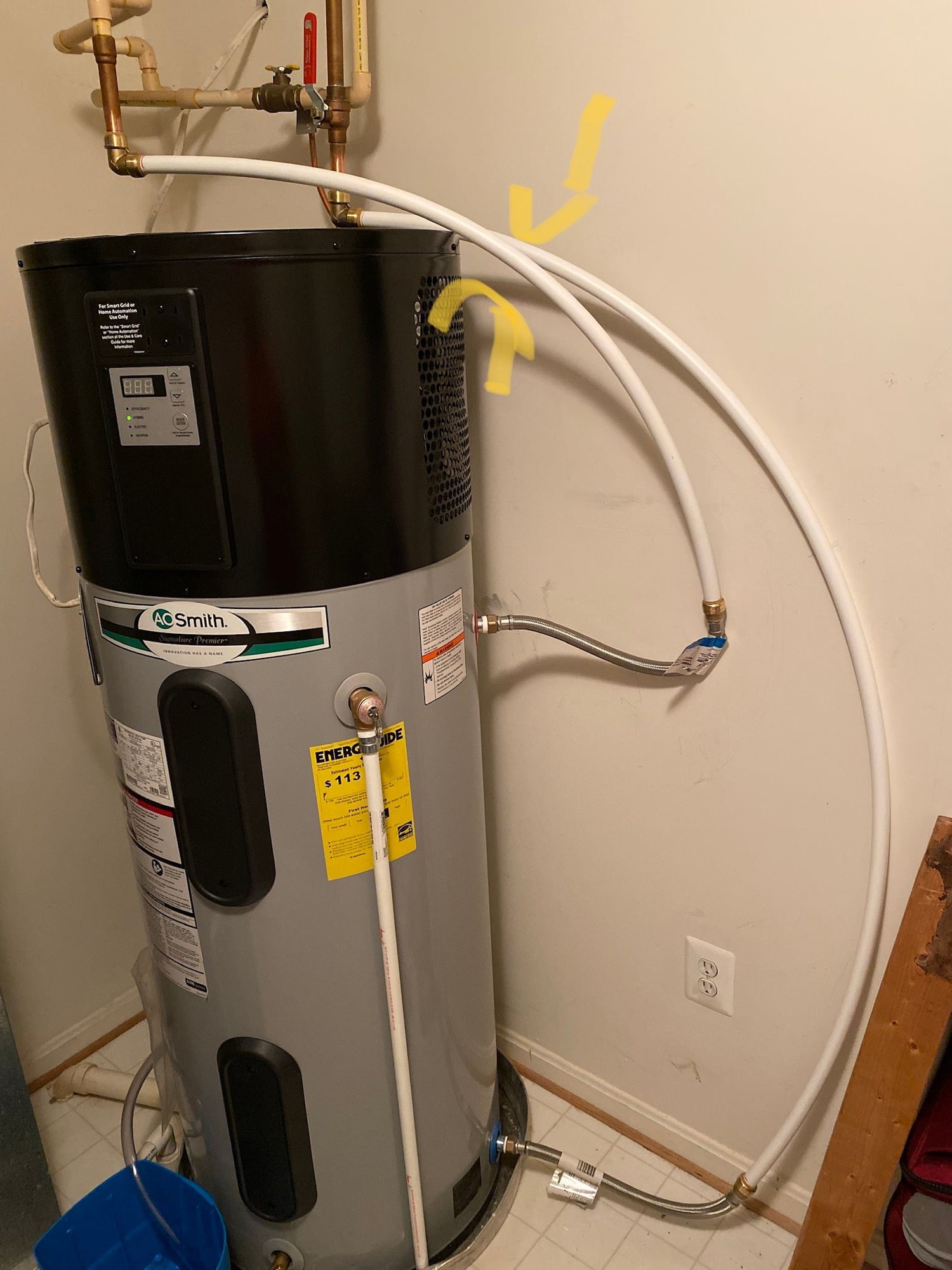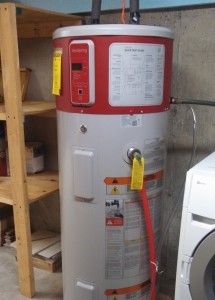A heat pump water heater (HPWH) is a type of water heater that uses a heat pump to heat water. The HPWH condensate drain is a small drain located near the bottom of the unit that helps to remove water that has condensed on the heat pump coils. This water is typically drained into a small pan or tray that is located underneath the HPWH.
If you have a heat pump water heater (HPWH), it’s important to keep the condensate drain clear. The condensate drain is responsible for removing any water that condenses on the evaporator coils. If the drain becomes clogged, the water can back up and damage the coils.
To clean the condensate drain, start by removing the drain cover. Then, use a wet/dry vacuum to remove any debris that may be blocking the drain. Once the drain is clear, replace the cover and tighten it securely.
If you notice that your HPWH is producing more condensate than usual, it’s a good idea to have the unit checked by a professional. There may be a problem with the coils that needs to be addressed.
Heat pump water heater condensate drain line
Do heat pump water heaters need condensate drains?
Condensate drains are not necessary for heat pump water heaters, as they do not produce condensation. However, it is important to ensure that the area around the heat pump water heater is well-ventilated to prevent the build-up of heat and humidity, which can lead to condensation and water damage.
How much condensate does a heat pump water heater produce?
In a typical home, a heat pump water heater (HPWH) will produce about 3 gallons of condensate per day. This is based on the average home using about 50 gallons of hot water per day. So, for every 1,000 watts of power used by the HPWH, about 3 gallons of condensate will be produced.
The condensate produced by an HPWH is relatively clean and can be safely discharged into a drain or into a sump pit. The water produced by the HPWH is also safe to drink. If you have an HPWH, it is important to keep an eye on the condensate production and make sure that the discharge area is not blocked.
If the condensate is not being discharged properly, it can cause the HPWH to overheat and potentially damage the unit.
How do you drain a heat pump hot water heater?
If your heat pump hot water heater is not draining properly, there are a few things you can do to try and fix the problem. First, check the drain valve to make sure it is open. If it is, then check the drain line to see if it is kinked or blocked.
If neither of these are the problem, then the issue may be with the pump itself. If this is the case, you will need to contact a professional to have the pump repaired or replaced.
See also: Hot Water Baseboard Heater Not Working In One Room
Where can I run my condensate pump drain line?
Condensate pumps are commonly used to remove water from HVAC systems. The condensate pump drain line can be run to a floor drain, sink, or outdoors. It is important to ensure that the condensate pump drain line is properly installed and maintained to avoid problems with your HVAC system.

Credit: www.doityourself.com
Rheem hybrid water heater condensate drain size
If you have a Rheem hybrid water heater, you may be wondering what size condensate drain it needs. The good news is that Rheem provides a chart that outlines the minimum drain size for each model of their hybrid water heater.
The minimum drain size for the RHWH-1 is 1/2″, while the minimum drain size for the RHWH-2 is 3/4″.
If you have a RHWH-3, the minimum drain size is 1″.
If you’re not sure which model you have, you can check the serial number on the back of the unit. The first two digits will indicate the model number.
If you have any questions about the condensate drain size for your Rheem hybrid water heater, you can contact Rheem customer service for more information.
Does a heat pump water heater need a drain
A heat pump water heater (HPWH) is a type of water heater that uses heat pump technology to efficiently heat water. HPWHs are available in both tankless and storage tank models.
Do HPWHs require a drain?
Yes, HPWHs require a drain for the discharge of the condensed water vapor. The drain can be either an external or internal drain. Most HPWHs come with an internal drain, but some models may require an external drain.
Check the manufacturer’s instructions to see if your HPWH model requires an external drain.
Heat pump water heater no floor drain
If you’re like most people, you probably think of your water heater as a simple appliance that provides hot water for your home. But there’s a lot more to it than that! In fact, your water heater is a complex system that uses a heat pump to transfer heat from the surrounding air into the water.
The heat pump water heater (HPWH) is a new type of water heater that is very efficient and can save you money on your energy bills. HPWHs use a heat pump to transfer heat from the air into the water, which means they are two to three times more efficient than traditional electric water heaters.
One of the great things about HPWHs is that they don’t require a floor drain.
That means they can be installed just about anywhere in your home, even in a small closet!
If you’re thinking about upgrading to a heat pump water heater, there are a few things you should know.
Conclusion
Most homes have a water heater, and many of those water heaters are powered by electricity. Many people don’t know that there is such a thing as a heat pump water heater, which can be much more efficient than a traditional electric water heater.
A heat pump water heater works by using the heat from the air around it to heat the water in the tank.
This is a very efficient way to heat water, and it can save a lot of money on your energy bill.
One of the things that you need to be aware of with a heat pump water heater is that it produces a lot of condensation. This condensation needs to be drained away from the unit, or it can cause problems.
If you have a heat pump water heater, be sure to check the condensate drain regularly to make sure that it is clear and that there is no water build-up.
You Can Also Read:
- You Can Also Read:


